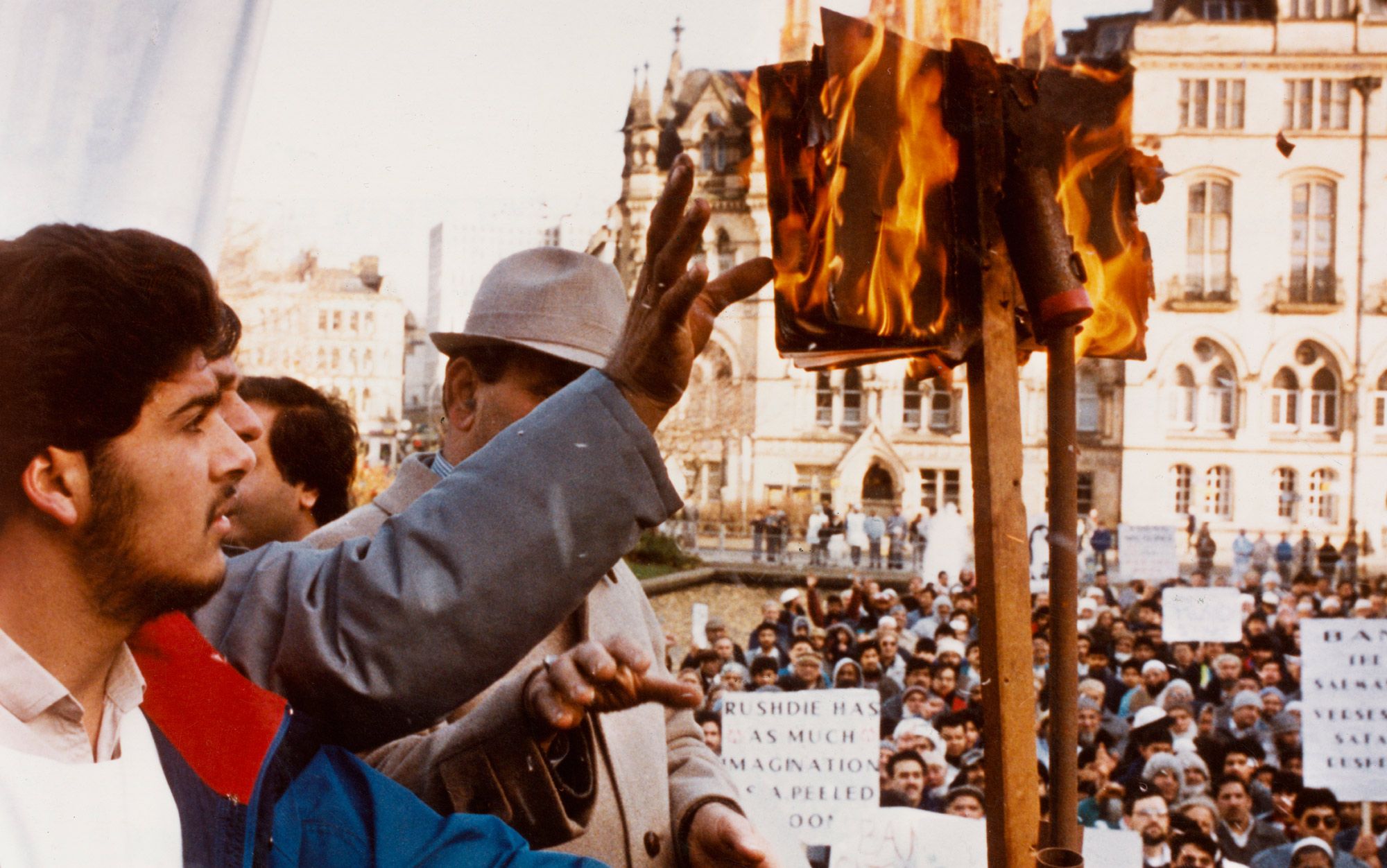by BRUCE FUDGE

Muslims burning copies of Salman Rushdie’s The Satanic Verses in front of Bradford City Hall, Bradford, UK. PHOTO/Derek Hudson/Getty
The Satanic Verses would not be written or published today. What’s changed since Salman Rushdie’s notorious novel?
‘Nobody would have the balls today to write The Satanic Verses, let alone publish it,’ the writer Hanif Kureishi told a journalist in 2009. Salman Rushdie’s notorious novel, like Kureishi’s figure of speech, is indeed looking like a relic of a bygone time. When it was published 31 years ago, the global furore was unprecedented. There were protests, book-burnings and riots. Iran’s leader Ayatollah Khomeini called on Muslims to kill Rushdie, a bounty was placed on his head, and there were murders, attempted and successful, of supporters, publishers and translators. The author spent years in hiding.
Three decades later, the novel remains in print, widely available, and the author walks about a largely free man. But if the skirmish over The Satanic Verses was won, a larger battle might have been lost. Who now would dare to write a provocative fiction exploring the origins of Islam? The social and political aspects of the Rushdie affair obscured one of the key ideas at stake: can someone from a Muslim background take material from the life of the prophet Muhammad to compose an innovative, irreverent and resolutely godless work of fiction?
Subsequent experience suggests not. The cases of the caricatures in the Danish newspaper Jyllands-Posten in 2005 and the French satirical magazine Charlie Hebdo at various times between 2006 and 2015 will make anyone, Muslim or not, think twice about representing the prophet Muhammad in anything but a conventionally reverent manner, for fear of giving offence or of grievous bodily harm, or both. The Danish and French cartoons, however, were treading on terrain already fertilised by The Satanic Verses. They were deliberately testing the limits of free speech and self-censorship. Other cases, such as Innocence of Muslims, a short film posted to YouTube in 2012, were more clearly anti-Muslim provocations where it is difficult to discern any genuine concern for free speech. The Rushdie affair was the first in a series of conflicts over the portrayal of the prophet Muhammad. In hindsight, though, it looks more like the end of an era than a beginning.
Aeon for more